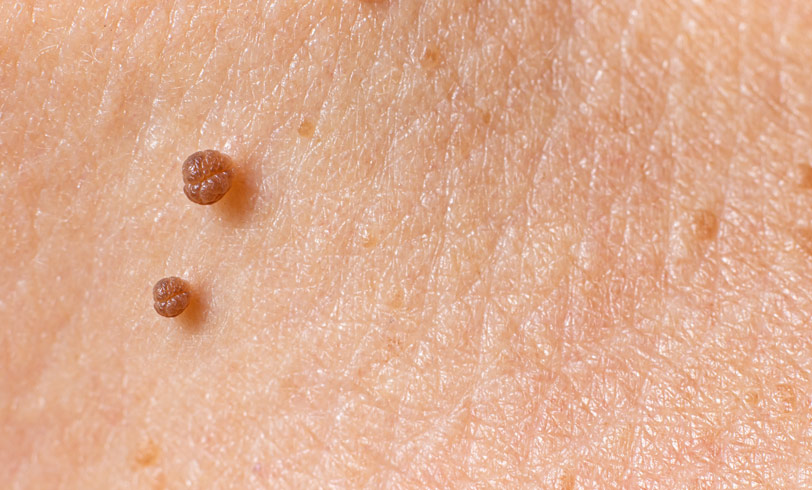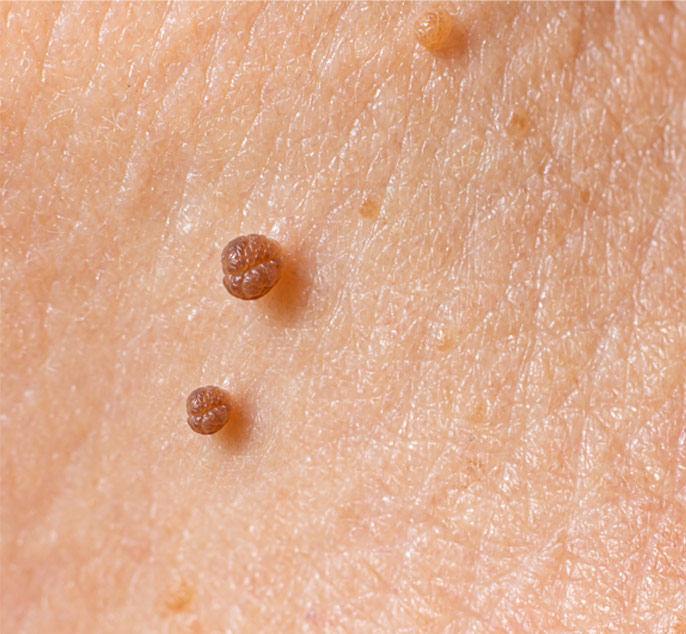

Skin Tags
Causes, Treatments And Prevention TipsSkin tags, also known as acrochordons, are small, benign growths that typically appear on areas where the skin folds, such as the neck, armpits, groin, and eyelids. They are composed of loose collagen fibres and blood vessels surrounded by skin and can vary in size from a few millimetres to a few centimetres.
Highlights
- Skin tags are a non-contagious skin condition in which skin tissues grow out of the surface of the skin. They are usually painless and harmless.
- Skin tags affect approximately 46% of the general population. They mostly affect adults above 40 years of age but can affect younger age groups as well. They equally affect men and women.
- As skin friction is a primary cause of skin tags, they usually occur in areas where there is significant skin folding or creasing—such as the neck, upper chest, underarms, under the breasts, eyelids, groins, inner thighs, etc.
- You can remove skin tags for both comfort and cosmetic purposes by either scissor excision (severing), electrocautery (burning), radiofrequency ablation (burning) or cryosurgery (freezing).
- Generally, dermatologists can remove skin tags in a single session and may schedule a touch-up session after a week or 10 days. If they are more in number, your dermatologist may suggest splitting the sessions.
What Is A Skin Tag?
Skin tags is a condition that causes skin-coloured hangs of tissue. Acrochordon is a medical term for it. Skin tags are harmless, painless and non-contagious, unlike other skin conditions, such as warts. They usually appear in areas such as the neck, underarms, eyelids, as well as the groin region varying widely in size and shape. They also occur more frequently in people who are suffering from type-2 diabetes and insulin resistance; and those who are overweight.
Causes of Skin Pigmentation
Here are some of the common causes of skin tags:
-
Friction from clothing or skin rubbing against skin
-
Obesity
-
Ageing
-
Hormonal changes, particularly during pregnancy
-
Insulin resistance
-
Genetic predisposition
Diagnosis
Physical examination of the growth
Medical history assessment
Biopsy may be performed if the skin tag is atypical in appearance
Are you at Risk?
-
Skin irritation and discomfort
-
Potential bleeding or infection if the skin tag is accidentally torn
-
Cosmetic concerns leading to emotional distress
Prevention and Management
Weight Management
You can effectively manage skin tags by maintaining a healthy weight, as obesity is one of the biggest risk factors associated with developing skin tags.
Monitor Blood Sugar Level
Keeping blood sugar and insulin levels under check help prevent future cases of skin tags.
Avoid Wearing Jewellery
Avoid wearing jewellery and coarse apparels that chafe against skin tags.
Treatment Options
Prognosis
- Skin tags are benign and do not pose serious health risks.
- Treatments are effective, and recurrence is possible.
- Regular monitoring and maintaining a healthy lifestyle can reduce the occurrence.


